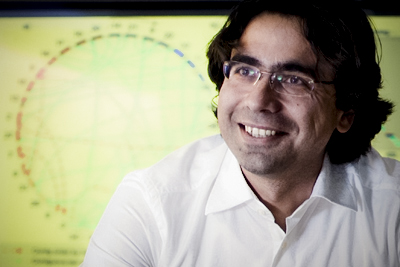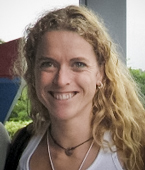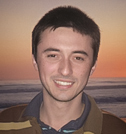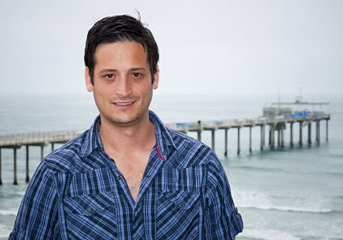
By:
- Judy Piercey
Published Date
By:
- Judy Piercey
Share This:
Four UC San Diego Faculty Members Named Alfred P. Sloan Foundation 2013 Fellows
The Alfred P. Sloan Foundation has announced the selection of researchers as recipients of Sloan Research Fellowships for 2013, including four scholars from the University of California, San Diego. Awarded annually since 1955, the fellowships are given to early-career scientists and scholars whose achievements and potential identify them as rising stars, the next generation of scientific leaders.
“The Sloan Research Fellows are the best of the best among young scientists,” said Dr. Paul L. Joskow, president of the Alfred P. Sloan Foundation. “If you want to know where the next big scientific breakthrough will come from, look to these extraordinary men and women. The foundation is proud to support them during this pivotal stage of their careers.”
UC San Diego Sloan Resarch Fellows include:

Nuno Bandeira
Nuno Bandeira, assistant professor in the Skaggs School of Pharmacy and Pharmaceutical Sciences and computer science and engineering
Bandeira is also executive director of the NIH/NCRR Center for Computational Mass Spectrometry at UC San Diego. His main research interests are in bioinformatics and computational biology, with a special focus on computational mass spectrometry. His research aims to substantially improve the capabilities of proteomics discovery pipelines and could result in the development of novel drug therapeutics. Bandeira received a bachelor's of science degree in computer science from New University of Lisbon, Portugal; a master's of science degree in applied artificial intelligence from New University of Lisbon, Portugal; and a Ph. D. in computer science and bioinformatics from the University of California, San Diego.

Eva-Maria Schötz Collins
Eva-Maria Schötz Collins, assistant professor of physics and biology
Collins investigates the role physical principles play in living systems, studying organisms with incredible regenerative powers, such as planaria and hydras, which can reconstruct two entirely new, complete animals when cut in half. By combining stem-cell biology with the mechanics of tissues and statistical physics, she has developed a unique experimental system characteristic of the emerging cross-disciplinary approach called quantitative biology. Collins received a bachelor's degree in mathematics and physics from University of Konstanz, Germany and a Ph.D. in physics from Technical University, Dresden, Germany

Adrian Ioana
Adrian Ioana, assistant professor of mathematics
Ioana works on a branch of mathematics called von Neumann algebras and its connection to ergodic theory and group theory. In 2012, the European Mathematical Society recognized his contributions, among them the solving of a long-standing conjecture, with their annual prize. Ioana holds a bachelor of science degree from the University of Bucharest and earned a doctorate from UCLA.

Martín Tresguerres
Martín Tresguerres, assistant professor of marine biology at Scripps Institution of Oceanography
A native of Argentina, Tresguerres joined Scripps in 2011. His interests include the evolutionary relationships between basic cellular functions and complex “whole organism” physiology. His studies utilize biochemical, molecular and cell biology, and physiological techniques to elucidate how marine organisms sense and adjust to acid/base disturbances arising from environmental and metabolic stress. Tresguerres received bachelor’s and master’s degrees specializing in aquatic biology at the University of Buenos Aires in Argentina. He received a Ph.D. in physiology and cell biology at the University of Alberta (Canada), and completed his postdoctoral training in molecular chemosensors and signal transduction at the Weill Cornell Medical College in New York City.
Administered and funded by the Sloan Foundation, the fellowships are awarded in eight scientific fields—chemistry, computer science, economics, mathematics, evolutionary and computational molecular biology, neuroscience, ocean sciences, and physics. Winners are selected through close cooperation with the scientific community. To qualify, candidates must first be nominated by their fellow scientists and are subsequently selected by an independent panel of senior scholars. Fellows receive $50,000 to be used to further their research.
Since 1984, UC San Diego has received more than $3.3 million from the Sloan Foundation. All of this year’s Sloan Research Fellows exemplify the success being seen through the UC San Diego Young Investigator Program. The program was developed by the Office of Corporate and Foundation Relations, in collaboration with campus partners, to connect research faculty at the start of their academic careers with the community and sources of private funding.
For a complete list of 2013 Sloan Research Fellowships, visit: www.sloan.org/sloan-research-fellowships/2013-sloan-research-fellows.
Share This:
You May Also Like
Stay in the Know
Keep up with all the latest from UC San Diego. Subscribe to the newsletter today.


